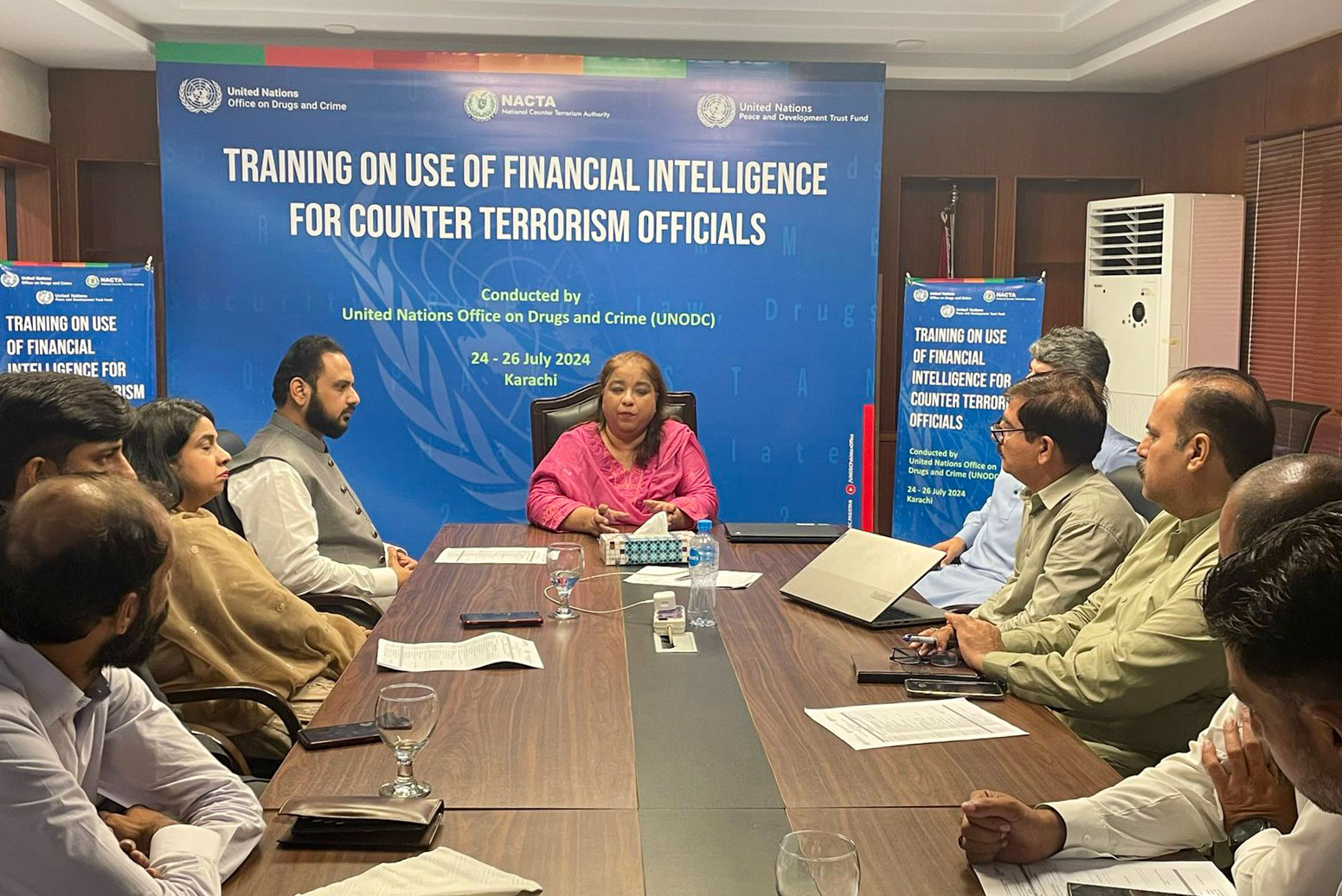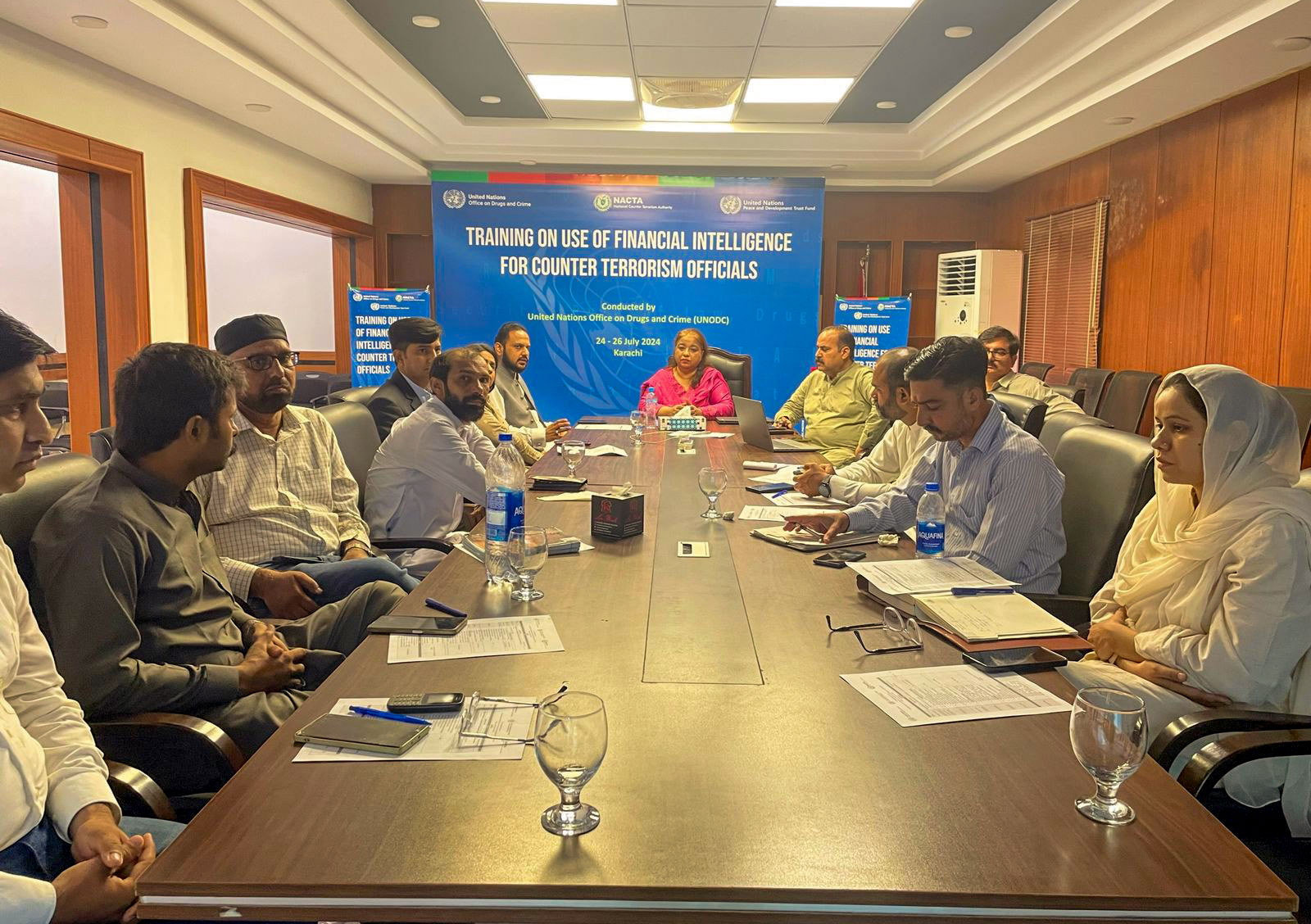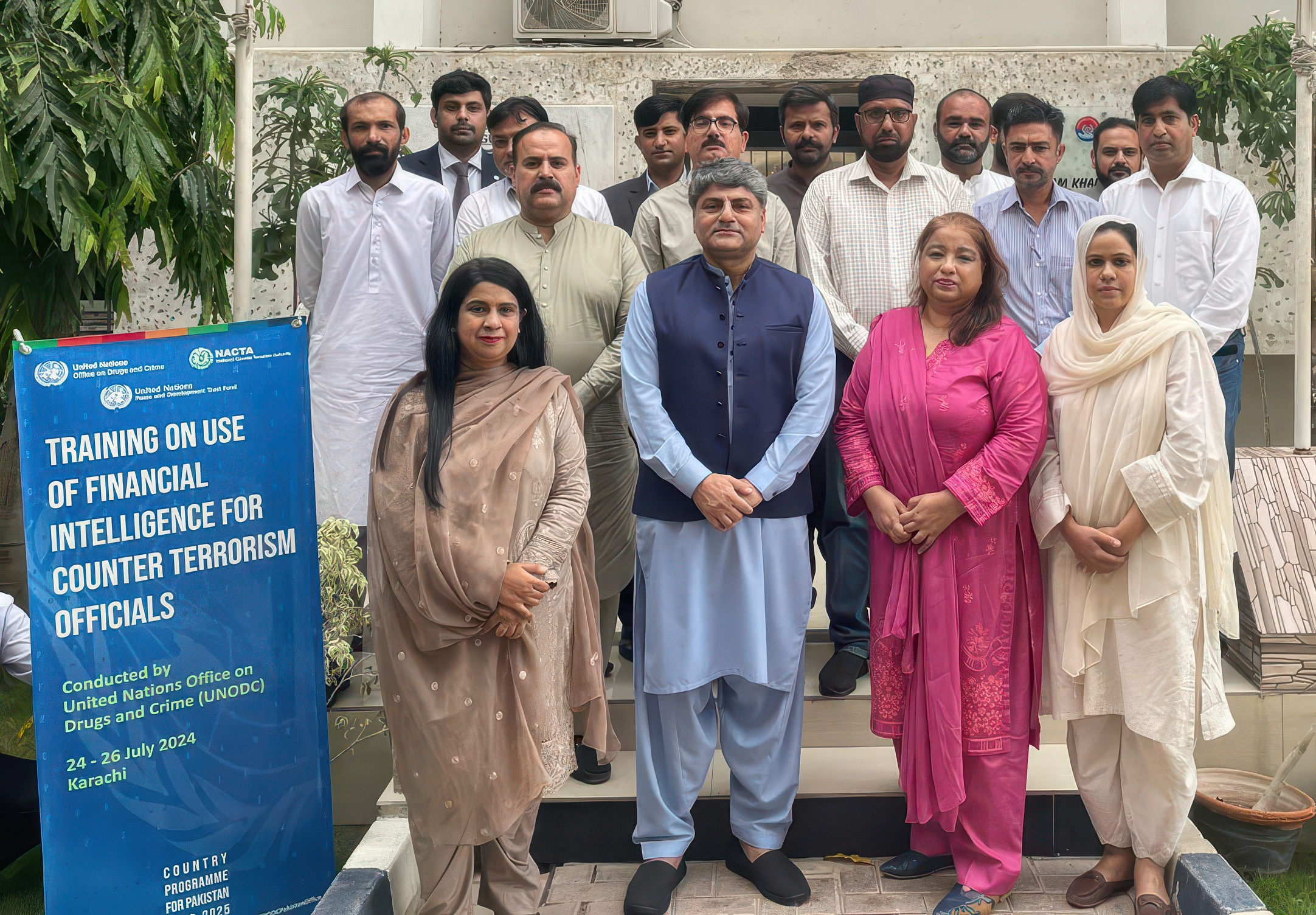Strengthening Financial Intelligence and Legal Cooperation to Combat Terrorism
27 July 2024, Karachi - The Financial Monitoring Unit (FMU) of the Government of Pakistan, in partnership with the United Nations Office on Drugs and Crime (UNODC) and National Counter Terrorism conducted a comprehensive three-day workshop on the "Development and Utilization of Financial Intelligence". This workshop, supported by the UN Peace and Development Trust Fund, aimed to enhance the capabilities of officials from the Counter Terrorism Department Sindh (CTD-Sindh) in handling Terrorism Financing (TF) cases, focusing on key aspects of financial intelligence and international cooperation.
 The workshop began with an introductory session covering the role and functions of the FMU, as well as an overview of the National Risk Assessment 2023. This laid the foundation for a deeper understanding of the landscape of financial intelligence in Pakistan.
The workshop began with an introductory session covering the role and functions of the FMU, as well as an overview of the National Risk Assessment 2023. This laid the foundation for a deeper understanding of the landscape of financial intelligence in Pakistan.
Participants delved into the Anti-Money Laundering and Counter-Terrorism Financing (AML/CFT) regulations, with specific emphasis on terrorism financing. The sessions explored the vulnerabilities associated with various banking products and high-risk areas, particularly in the context of branchless banking. Key topics included the challenges of biometric verification, Know Your Customer/Customer Due Diligence (KYC/CDD), and Enhanced Due Diligence (EDD) processes.
 A significant portion of the workshop was dedicated to understanding the International Sanction Regime, including UNSCR 1267 & 1373, and the role of the United Nations Security Council. Participants were provided with insights into the Financial Action Task Force (FATF) recommendations, particularly regarding targeted financial sanctions and the proscription process of individuals and entities.
A significant portion of the workshop was dedicated to understanding the International Sanction Regime, including UNSCR 1267 & 1373, and the role of the United Nations Security Council. Participants were provided with insights into the Financial Action Task Force (FATF) recommendations, particularly regarding targeted financial sanctions and the proscription process of individuals and entities.
The sessions also covered various banking products and the terminologies associated with them, as well as the Transaction Monitoring System. Participants learned about alert generation processes and the decision-making involved in escalating cases as Suspicious Transaction Reports (STRs). There was a strong emphasis on the coordination between financial institutions and law enforcement agencies, highlighting the role of the FMU in disseminating financial intelligence.
 On the final day, attendees were introduced to the goAML system, a critical tool for the analysis and management of financial intelligence data. This session provided practical insights into the functionalities of the software, enhancing the participants' ability to handle real-world scenarios effectively. Discussions also included the processes for drafting informal international cooperation requests and the importance of maintaining confidentiality in shared intelligence.
On the final day, attendees were introduced to the goAML system, a critical tool for the analysis and management of financial intelligence data. This session provided practical insights into the functionalities of the software, enhancing the participants' ability to handle real-world scenarios effectively. Discussions also included the processes for drafting informal international cooperation requests and the importance of maintaining confidentiality in shared intelligence.
The workshop concluded with a discussion on the challenges related to coordination between domestic and international agencies. This workshop underscored the critical importance of financial intelligence and international cooperation in combating terrorism financing and related financial crimes, facilitated by the financial support of the UN Peace and Development Trust Fund.
